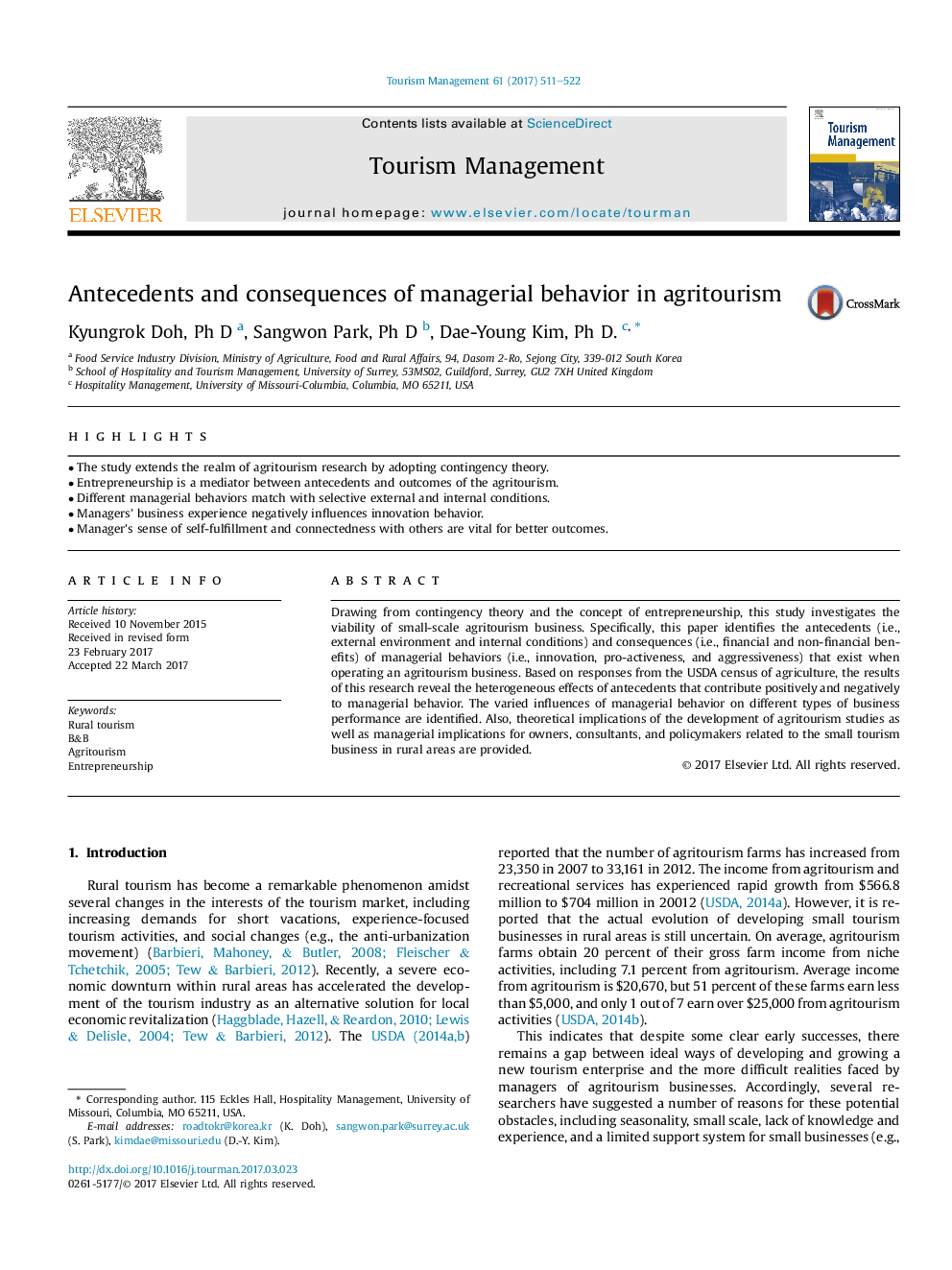| Article ID | Journal | Published Year | Pages | File Type |
|---|---|---|---|---|
| 5108512 | Tourism Management | 2017 | 12 Pages |
Abstract
Drawing from contingency theory and the concept of entrepreneurship, this study investigates the viability of small-scale agritourism business. Specifically, this paper identifies the antecedents (i.e., external environment and internal conditions) and consequences (i.e., financial and non-financial benefits) of managerial behaviors (i.e., innovation, pro-activeness, and aggressiveness) that exist when operating an agritourism business. Based on responses from the USDA census of agriculture, the results of this research reveal the heterogeneous effects of antecedents that contribute positively and negatively to managerial behavior. The varied influences of managerial behavior on different types of business performance are identified. Also, theoretical implications of the development of agritourism studies as well as managerial implications for owners, consultants, and policymakers related to the small tourism business in rural areas are provided.
Related Topics
Social Sciences and Humanities
Business, Management and Accounting
Strategy and Management
Authors
Kyungrok Ph D, Sangwon Ph D, Dae-Young Ph D.,
